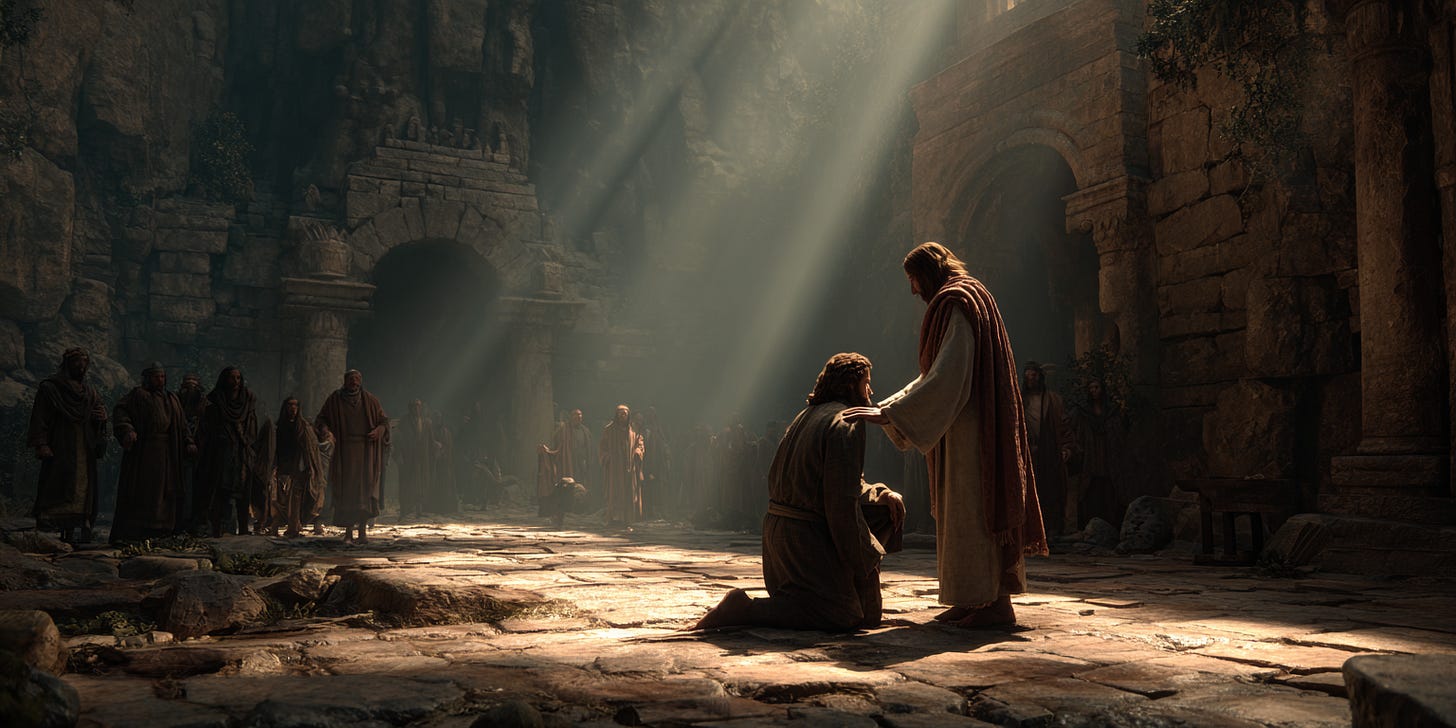Theme:
Matthew 16 marks a turning point. In the midst of worldly confusion and spiritual opposition, Jesus reveals the foundation of the Church—not a building, but a revelation. This chapter calls us to recognize Jesus for who He truly is and to walk in the authority He imparts to His followers.
Objectives:
To understand the significance of Peter’s confession.
To explore the authority given to the Church through revelation.
To grasp the spiritual reality behind the battle against hell.
To embrace the cost of discipleship and the path of self-denial.
Scripture Focus:
Introduction
Jesus takes His disciples to Caesarea Philippi—a region known for pagan worship and spiritual darkness—and poses a question that echoes through eternity: “Who do you say I am?” This is not just a theological inquiry—it’s a heart-level revelation that unlocks identity, authority, and mission.
1. The Confession that Changes Everything
Peter’s declaration, “You are the Christ, the Son of the living God,” is not intellectual—it is spiritual insight. Jesus affirms that this revelation came from the Father. It’s on this divine unveiling—not on flesh and blood—that the Church is built (Matthew 16:16–17).
2. Jesus Builds His Church on Revelation
The Church is not a product of human strength, tradition, or institutional power. It is a people called out by truth—those who see Jesus clearly. Hell’s gates—symbolic of spiritual resistance and deception—cannot withstand a Church walking in true revelation (Matthew 16:18).
3. The Keys of the Kingdom
Jesus entrusts His followers with authority: to bind and loose, to open and shut doors in alignment with heaven. This is more than religious language—it is a commissioning to act with heaven’s backing in earthly matters (Matthew 16:19).
4. Suffering and Glory
When Jesus speaks of His impending death, Peter reacts emotionally—but Jesus rebukes him sharply. The Kingdom advances not through avoidance of suffering, but through sacrificial love. The cross precedes the crown (Matthew 16:21–23).
5. The Cost of Discipleship
To follow Jesus is to surrender self-will, take up the cross daily, and walk the narrow path of obedience. This is not defeat—it is the pathway to life, purpose, and eternal reward (Matthew 16:24–27).
Exploring Key Themes
Revelation is the foundation of identity and mission: Seeing Jesus clearly transforms how we see ourselves and what we are called to do.
The Church is a spiritual force, not a cultural institution: It carries divine authority to challenge darkness and restore truth.
Kingdom authority is real and active: Believers are called to use it responsibly, aligned with the will of the Father.
The path of glory leads through sacrifice: Discipleship is costly, but the reward is intimacy with Christ and eternal impact.
Reflection and Response
Who is Jesus to you—not just intellectually, but relationally?
Are you walking in the authority Christ has given you, or settling for survival?
How do you respond when God’s plan includes suffering?
What area of your life needs to be surrendered to follow Jesus more fully?
Key Takeaways
Revelation of Christ births authority and identity.
The Church is built on divine insight, not human effort.
Believers are called to actively oppose darkness.
The cross is central to true discipleship.
Conclusion
Jesus asks every generation the same question: “Who do you say I am?” How we answer determines everything. In Christ, we receive revelation, identity, authority, and purpose. As we carry our cross, we carry His victory—advancing a Kingdom that even the gates of hell cannot stop.


